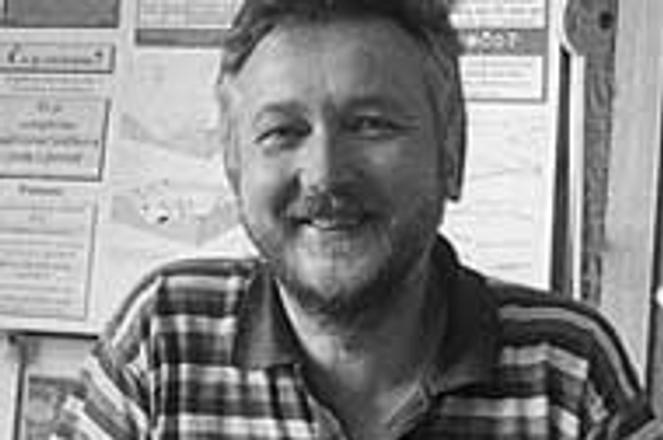Environmentalist Michal Kravčik.photo: Sharon Otterman
For Michal Kravčik, a grass-roots environmentalist based in Košice, it was easier last April to get a handshake from US First Lady Hillary Clinton than from current Slovak President Rudolf Schuster.
In that heady month, Kravčik was flown to the United States to receive the Goldman Environmental Prize, the world's largest prize for grass-roots environmentalists. Besides the $125,000 award and the honour of being selected as the year's top European candidate, he was also congratulated by the American President and his wife.
It was the second such major honour for Kravčik, whose non-governmental organization, People and Water, won a European Union prize last year and was feted by British Prime Minster Tony Blair.
But getting real recognition from the Slovak government has been a different story. After all, Kravčik is winning awards for fighting against, not for supporting, the Slovak government's often unsound environmental policies.
"The award was a good mark for us, but a challenge to the Slovak government," Kravčik said. "We are very unhappy that things in Slovakia are getting worse. People in the government do not have a clear vision for the 21st century."
People and Water (Ľudia a voda) made Slovak headlines in 1996 when it successfully defeated a major dam-building project which the then-Mečiar government was attempting to resuscitate from the communist era. Though it faced many challenges, the group was finally able to prove to the Ministry of Environment that no such dam was needed for drinking water in eastern Slovakia. Had it not been for their efforts, and the efforts of the villagers whose resistance against the proposal they galvanised, the $102 million Tichý Potok dam would have likely been built, at great cost to state, the environment, and the five 700-year-old villages which would have been adversely affected, the Goldman selection committee ruled.
Kravčik, 43, is a soft-spoken man who is a hydrologist by training. After being fired from the Slovak Academy of Sciences in 1988 for refusing to make his research conform with another government proposal, he worked as a consultant before starting his NGO in 1993.
His small, cluttered office in a Košice housing block in gives little hint of the international stature his group has gained. His commitment to his cause, however, is evident as soon as he starts talking.
Kravčik's hopes for Slovakia extend well beyond the goal of stopping any more wasteful and harmful dams from being built. Along with his partner Jaroslav Tesliar and other environmentalists, he has come up with a broad economic and environmental plan for the 21st century which he believes can help revitalise village life in Slovakia and also begin to repair a countryside badly damaged by poor environmental policy.
Called the Blue Alternative, the plan calls for small villages to begin to create a variety of small businesses they can manage themselves. From organic fish farms to a revival of traditional handicrafts, he sees a future in what he calls the "small distinctiveness" of Slovak village life.
From an environmental perspective, he says what is needed is far less centralised management and a move towards allowing each district to manage its own water resources. In the proposal he offered as an alternative to the massive dam, each community would manage a series of drainage streams and catch basins which would provide all required drinking water. At the same time, dozens of local jobs would be created.
Until a few months ago, the only response Kravčik got from the central government was resistance. The group was fined 5,000 crowns in 1995 after it built a pilot stream in the Tichý Potok region near where the dam was planned, in an effort to show how alternative water management could work.
Even after his NGO won the Goldman prize, Schuster, then the Mayor of Košice, was "too busy to meet with us," Kravčik said. The Ministry of Environment did send a letter of congratulations, but the Ministry of Agriculture, the group's direct adversary during the dam battle, did not get in touch.
Since the end of communism, water management has actually become more, not less, centralised in Slovakia, with dire results, Kravčik said. In part due to bad government policy, flooding in eastern Slovakia is annually getting worse. In 1998, flooding cost 47 human lives and $800 million in damages, he said.
But perhaps a small change is coming. Last month, for the first time, one of the regional water authorities actually contacted Kravčik to ask for cooperation on a flood management project around Dubovica, an eastern Slovak town badly damaged by severe July 1998 floods.
Kravčik and Tesliar are hoping to create a series of small lakes in the nine square kilometre project area, though they don't yet know how many of their ideas the company will accept.
"We were shocked," Kravčik said of the invitation to help, repeating the word he used to describe his feelings at winning the Goldman prize. Still, he is not going to believe that his ideas will be used until it happens." It's going to be a process of negotiation," Tesliar said.


